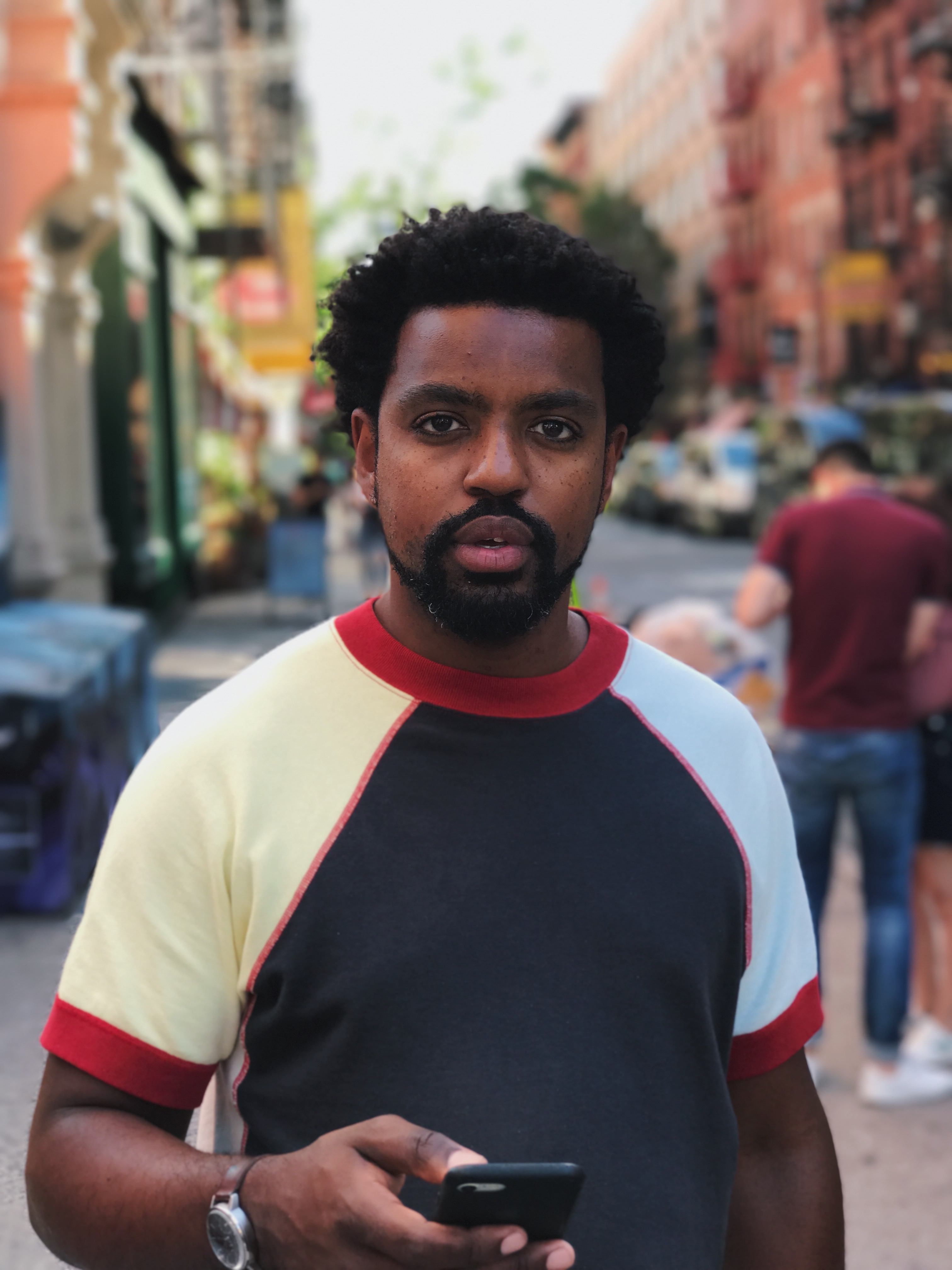Growing up, I always thought there would be one breakthrough moment that would define my career, but more recently I’ve realized there would be no such moment. Instead, I’ve come to realize the moment had already happened. It was the moment I learned about the importance of problem solving.
Becoming a better problem solver has unlocked previously unimaginable opportunities for me in the past few years. I’ve had several “OMG” moments while rubbing elbows with Apple CEO Tim Cook in Austin, pitching investors in Hong Kong, learning investment strategy from Warren Buffett in Omaha, Nebraska, and standing to speak on the main stage at the TED Conference in Vancouver.
For each of the last few years, as the founder and CEO of Localeur, an online platform helping travelers experience local in 120 cities around the world, I’ve traveled more than 200 days a year solving countless problems along the way. No matter where my work takes me, be it New York or New Zealand, Toronto or Tokyo, I think about lessons I learned from my mom as a 10-year-old in South Carolina.
Living in a small $400-a-month, two-bedroom duplex watching my mom grind from week-to-week, paycheck-to-paycheck, I never even imagined that just a quarter-century later I would become one of the only black founders in history to raise $5 million for a consumer tech start-up. I never fathomed being able to travel the world as part of my job. Back then, simply going to the grocery store was hard.
Let me explain.
My young mother – who had birthed my two older brothers and me before her 22nd birthday – worked two and sometimes three jobs to keep food on the table and a roof over our heads. My father left us without so much as a child support check when I was around three years old. I was still too young to fully grasp the significance of growing up fatherless or the fact that my mom had dropped out of community college to raise us and that no one in my family had graduated from college at that point, but I had a feeling it was probably not a good thing.
My childhood, particularly my first decade, was an endless loop of watching my mother work magic, spin multiple plates, juggle various responsibilities, put out emotional, physical and financial fires, grit and scrap together our entire existence.
Me being the youngest, I was often the son tasked with accompanying my mom when she ran errands which is where I saw first-hand how difficult and gruesome this balancing act of hers was. And on one particular day in May 1993, I had an experience in the grocery store that taught me a lesson that would influence me for years to come.
My mom was her usual self in the store that day, being diligent about selecting items that could help her feed three growing boys and stretch the budget like an elastic waistband. Aisle by aisle we made our way through the store before taking our turn toward the register. Just then, I saw my classmate Robert, another black kid who’d been more foe than friend to me throughout forth and fifth grade, with his mom. I didn’t know his situation too well beyond realizing he never seemed to wear the Salvation Army and hand-me-down clothes I did. I was pretty sure his mom had somehow gone to college and become a professor, lawyer or something like Claire Huxtable on The Cosby Show or maybe his dad was actually in the picture. I imagined one of those pictures where the mom and kids are seated in their finest Sunday outfits and the dad stood in the back with his arms extended around them, somehow touching every family member below him in the photo as if visually representing his God-given dominion.
I nodded to him in the store, acknowledging I’d seen him and his mom in the aisle over from us, as I started helping my mom unload the groceries onto the belt. After a few items were beamed, my mother made a face that was a mixture of disappointment and surprise. She realized she’d yet to receive the next month’s installment of food stamps in the mail. What this meant is that she had to use her remaining cash, however limited, and whatever food stamps she had left hiding in her purse from the previous month’s government-assisted infusion. Not much.
Just then, I looked over and saw Robert’s face. I could be misremembering, but I swear he was standing there with his well-to-do mother signaling his laughter toward me only not at all with an actual audible laugh but with a more powerful, silent one, conveyed only through his young eyes. I shrank inside my 4-foot-nothing frame with both embarrassment and sadness, but only momentarily as there was work to be done.
“Go put these back,” my mom said to me.
I picked up my chin and quickly ran to take the items back to their respective aisles as she cashed out, although I’m not sure what word you use when the majority of the groceries were likely paid for with food stamps. We food-stamped out? Not sure. Regardless, the food stamps were only half of the lesson I learned this particular week of May 1993. I never blamed my mother for our dependence on food stamps; I saw how hard she worked to provide for us.
No, the other half of my lesson would present itself the following week at school.
Mrs. Doty, my fifth grade teacher at Berea Elementary School, announced to our entire class that we were going on the first overnight trip offered to elementary school kids. The excitement in her voice was met with the kind of fervor you expect from young children the night the Christmas tree goes up, lights ablazing. But the trip wasn’t to nearby metropolis, Atlanta, Georgia, where the Olympics were to take place a few years later or to a vacation destination like Myrtle Beach, South Carolina, where high school kids flocked every summer, but to lesser-known Camp Greenville.
The YMCA-owned facility was only about 36 miles north of our school, but to fifth graders, it wasn’t the distance that led to excitement, but the chance to have an experience away from home.
Unfortunately, the trip cost was $90, which was similar to my family’s monthly electric bill (which I’d learned watching my mom budget) so I didn’t end up going. So while my classmates experienced the wonders of Camp Greenville and life away from home, even if a lone night, I sat in the classroom with a substitute teacher continuing my education albeit with little more than a workbook. But, thankfully, my short-lived inability to solve the problem of being unable to go on a field trip coupled with the grocery store experience planted the seed of an idea that ultimately fueled my long-lived hunger for more access to the world and all of its opportunities. The seed wasn’t for wealth or travel, but for problem solving.
Fast-forward two decades and there I was, standing in a room pitching investors on my newly-launched travel start-up, Localeur.com, and a couple years later giving a demo of our app to the CEO of Apple, one of the most valuable companies in the world. Today, as one of the leading black voices in tech, I can proudly say that I’ve been able to solve most of the problems I’ve faced over the last 25 years. From a lack of educational attainment in my family and a lack of a father figure to the lack of funding for black founders to the presence of institutional bias, I’ve overcome it all.
Each of these obstacles has been met with something I learned from watching my mom string together one solution after another all those years ago: how to maintain a problem-solving mindset.
Today, my start-up Localeur has taken me all over the world and given me the opportunities of a lifetime. There’s a sense of irony to running a travel start-up considering how not being able to travel as a kid. I’ve unlocked access to a world that I couldn’t even fathom as a kid, but it’s not VC funding or even a college degree that did it for me. It was my willingness to solve any problem that came my way.
I should also note that my mother is now the proud owner of her first house and a college degree (she’s going for a second), which she attained 45 and 50 years old, respectively. Needless to say, she’s proof that there’s no problem worth giving up on, even if decades later.
For many years, I grew up thinking that I came from a broken family; one in which college degrees were as rare as successfully married couples. Now I view my mom as proof that my grit, determination and problem solving mindset may be genetic.
As an emerging business leader, I’ve read all the books by Stephen Covey and Adam Grant along with the business books by men like Peter Thiel and Ben Horowitz, but the privilege and luck each of those men benefited from made it challenging for me to relate to their stories in the way I related to the struggles my mother faced.
This is why I’ve written a book on problem solving to help others who are on a journey that may seem downright impossible, as did mine when I set out to become the first person in my family to graduate from college or one of the only black founders to raise millions of dollars for a technology start-up, in Texas at that.
Becoming a better problem solver doesn’t demand you move to New York or Silicon Valley nor must you become a billionaire, celebrity entertainer or even an Ivy League graduate. Being a good problem solver simply means doing the best you can with the situations you face so consistently, diligently and tirelessly that winning becomes inevitable. I learned that from my mom.
If you’re reading a business book trying to increase your chances of success, that time may be better spent learning how to become a better problem solver.
This is an excerpt from Joah Spearman’s upcoming book about problem solving set to publish in 2020. He is represented by CAA.
Follow us here and subscribe here for all the latest news on how you can keep Thriving.
Stay up to date or catch-up on all our podcasts with Arianna Huffington here.


